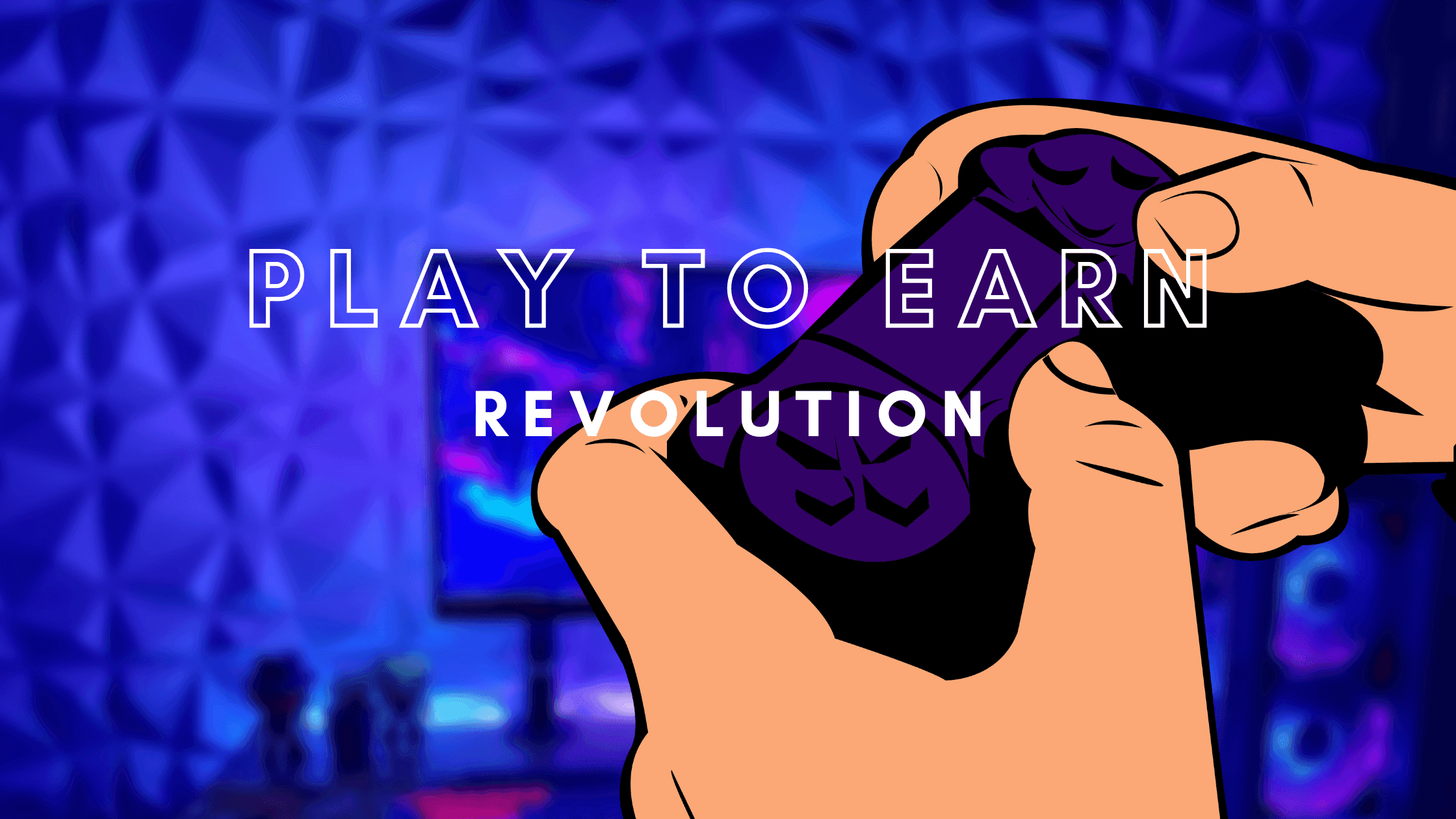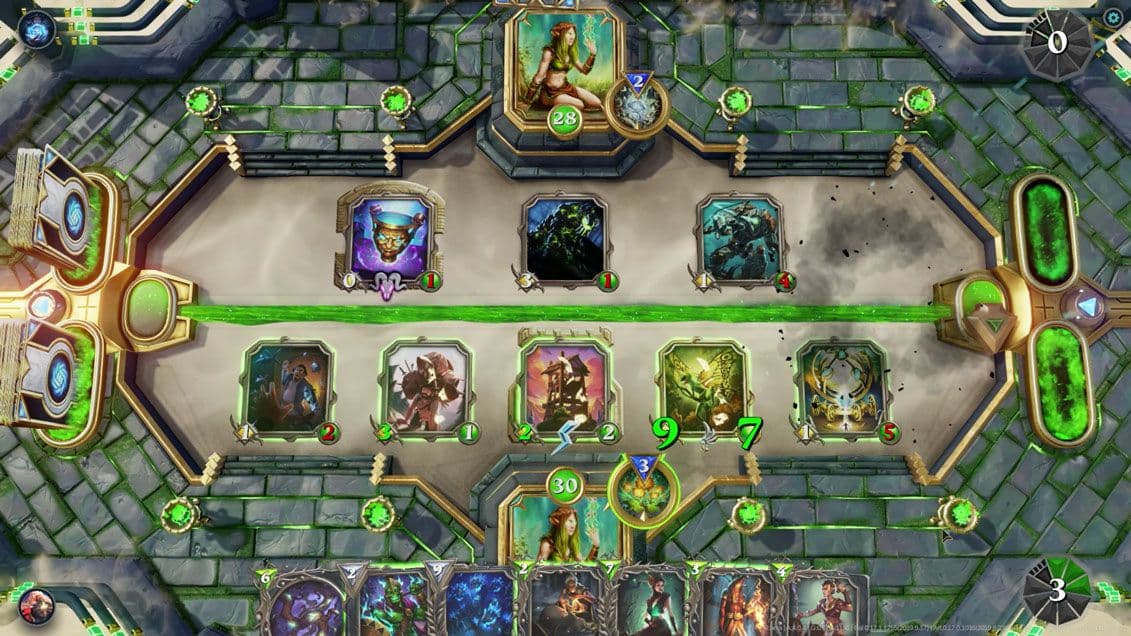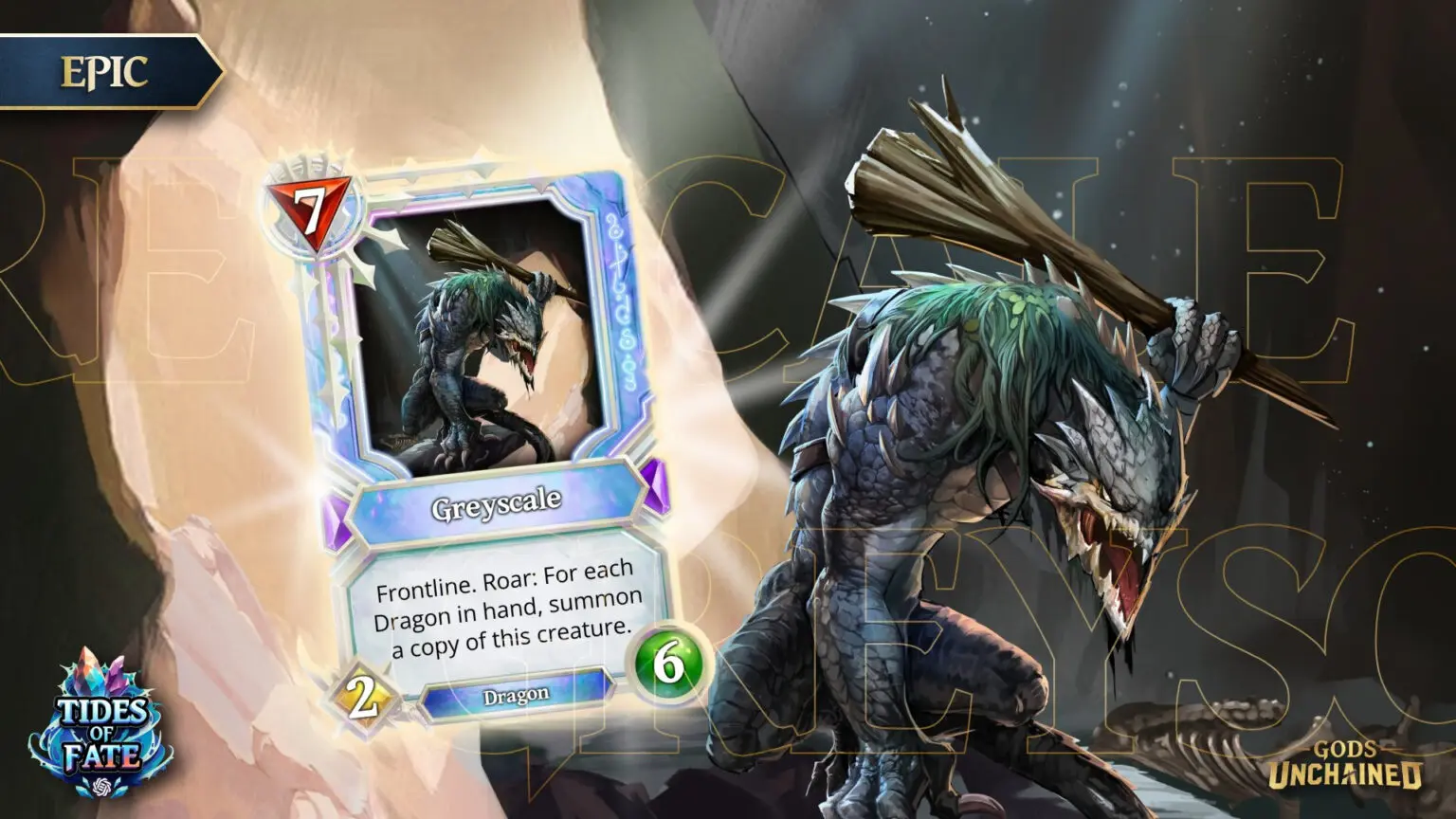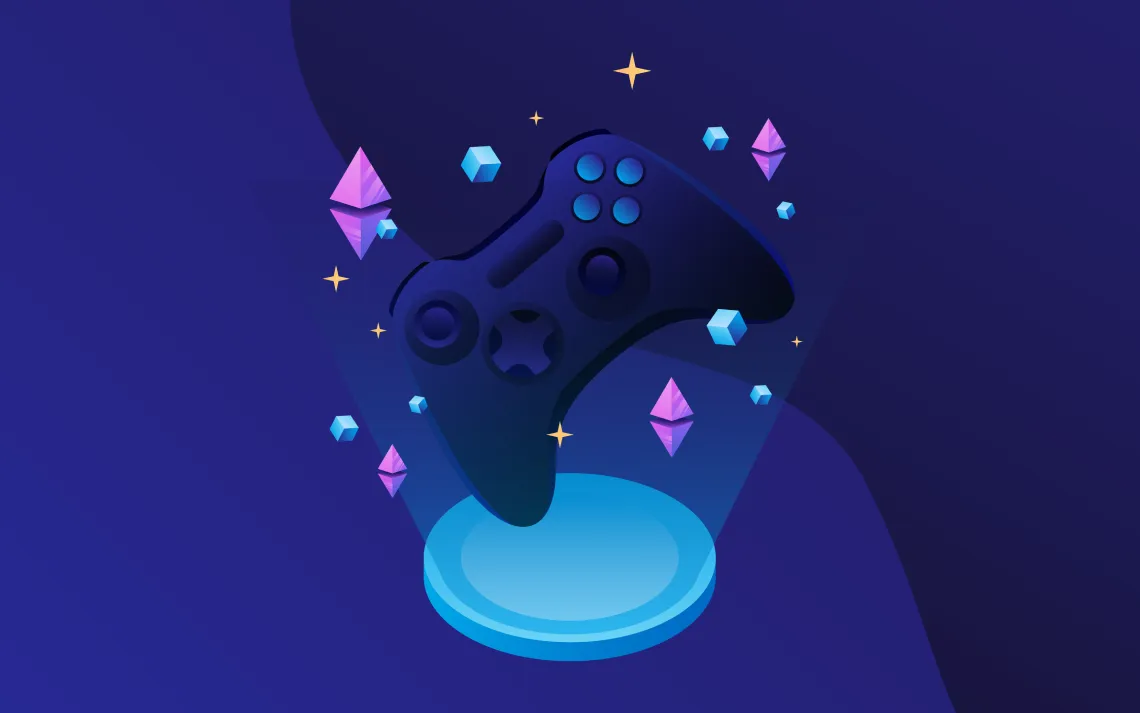In the ever-evolving landscape of gaming, Play-to-Earn (P2E or p2e) and Blockchain games have continued to gain traction. As traditional gaming models undergo transformative shifts, these decentralized, blockchain-based ecosystems have captured the imagination of players and investors alike.
The fusion of cutting-edge web3 technology and gaming has given rise to new economic paradigms, where players can earn real-world value through their in-game activities. This article unpacks the current state of Play-to-Earn and Blockchain games, exploring the innovative concepts, challenges, and impact these decentralized experiences are making on the gaming landscape.
From the rise of NFTs (Non-Fungible Tokens) to the creation of player-driven economies, in this article we cover the dynamic intersection of blockchain technology and gaming, shaping the future of interactive entertainment.

Key Definitions
Play-to-Earn: "Play-to-Earn represents a genre of blockchain-based games that incorporate player-owned economies through the use of in-game assets represented by tokens and NFTs.”
Blockchain Game: "A blockchain game is any game that uses blockchain technology to enhance or rearchitect traditional video games."
NFT Game: "An NFT game is a video game that uses NFTs as a core part of their gameplay and economy. NFTs, or Non-Fungible Tokens, are 1-of-1 tokens generated by smart contracts and blockchain technology"
The current landscape of play-to-earn and blockchain games is witnessing a significant shift within the gaming ecosystem. Over the past year, a surge of play-to-earn games has emerged, with Axie Infinity standing out as a prominent example in terms of economic growth. In the next section of this article, we will cover a few of the more popular examples of Play-to-Earn (P2E) games.
Examples of P2E in Games
(1) Axie Infinity
Axie Infinity, a popular trading and battling game centered around NFT fighters known as Axies, is aligning itself with the core principles of blockchain technology by striving for increased decentralization.
Sky Mavis, the entity behind Axie Infinity, is charting a course toward community governance through the staking of its native AXS governance token. Major decisions regarding the NFT marketplace's future, movement of treasury funds, and employee compensation at Sky Mavis are determined through a majority vote via on-chain governance.

In this evolving system, the community gains more influence collectively as additional AXS tokens are distributed to active players. This approach empowers those deeply invested in the game, pioneering the concept of a player-owned game.
From a gameplay perspective, players acquire Axies from an open marketplace to assemble teams for adventures or player-versus-player battles. Players are rewarded with Smooth Love Potion tokens (SLP) for their time spent in the game.
These ERC-20 tokens are intricately linked to the Ethereum Network and the Ronin sidechain. SLP tokens can be sold directly or used for breeding Axies, which can be traded for value based on their attributes and the current metagame status.

Axie Infinity players receive daily SLP rewards, establishing a direct correlation between in-game participation and tangible rewards. Verifiable ownership of Axie NFTs enables players to retain value from their initial investment, which is subject to market fluctuations.
Breeding Axies further allows players to sell or retain new Axies, potentially profiting from their rarity. Notably, Axie Infinity has become the most widely embraced play-to-earn game, particularly in the Philippines, where many actively engage in the game for its monetary incentives.

(2) Gods Unchained
Gods Unchained is a popular P2E and NFT trading card game (TCG) by Immutable (IMX) on the Ethereum blockchain. Here, cards of varying rarities can be openly bought, sold, and traded as NFTs. Players not only build their preferred decks but also earn $GODS tokens by playing and winning games. These tokens can be used to purchase new card packs or contribute to the in-game governance mechanism.
Gods Unchained closely mirrors the gameplay of popular online card games like Hearthstone and Legends of Runeterra. In this player-versus-player (PvP) format, participants strategically employ decks of cards to outwit opponents and secure victory.

To expand their card collection, players acquire randomized packs of NFT cards using the game's native currency, $GODS tokens. This currency can be obtained through direct purchases from a marketplace or earned by actively engaging in gameplay. The uniqueness of these NFT cards lies in the fact that once acquired, players have full ownership, and a dedicated marketplace facilitates the seamless buying and selling of these digital trading cards.

Gods Unchained is a prime example of a P2E game that integrates blockchain technology to elevate a familiar gaming model. In contrast to games like Hearthstone or Legends of Runeterra, where players lack complete ownership of their cards, Gods Unchained harnesses the power of NFTs to emulate the advantages seen in physical card games like Yu-Gi-Oh! and Magic the Gathering. This includes the freedom to trade, purchase, and sell cards, all within the digital realm.

Final Thoughts
The terms "blockchain gaming" and "play to earn" are essentially synonymous, as nearly all blockchain-based games offer verifiable ownership of in-game items and currencies with real-world value. Whether it's Axie Infinity, Gods Unchained, or others, these games provide a glimpse into what play-to-earn gaming entails.
However, it's crucial to acknowledge that decentralized governance isn't guaranteed. Players need to recognize that verifiable ownership is just one aspect of the equation. These games not only grant players access to open marketplaces but also assign real-world value to in-game items, making blockchain, both culturally and technologically, a promising foundation for player-owned economies and communal governance, fostering truly player-owned games.

In essence, Play-to-Earn is not just about introducing monetary incentives to video games but fundamentally altering how players perceive the value of their time, effort, and attention within a game. It represents a shift towards a player-centric economy, where tangible digital assets become tradable commodities, reminiscent of real-world transactions. As blockchain continues to influence the gaming landscape, P2E is poised to become a defining trend, offering players a new standard for digital asset ownership and open in-game economies.
This article was inspired by an original blog post from Chainlink, you can read the full post on their website here for more information.






